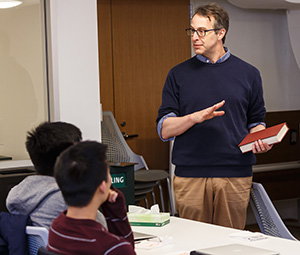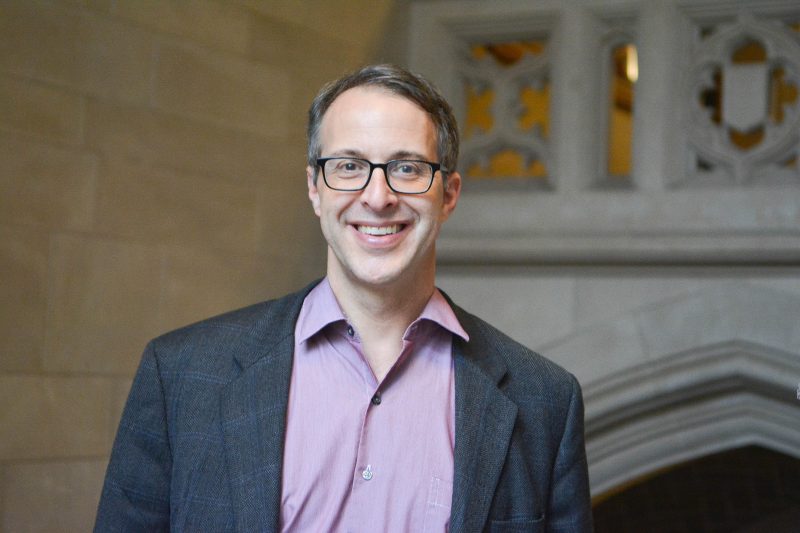Historian David Engerman discusses how improving conditions in the present requires understanding how other countries see the past.
For twentieth century historian David Engerman, the state of US-Russia relations is always top of mind.
Then in February 2022, Russia’s invasion of Ukraine thrust his primary academic subject into the daily headlines and our everyday conversations.
To better understand the geopolitics of our current moment, it’s useful to consider how the past can influence current events and policy-making. Countries beyond U.S. borders see the past in starkly different terms than do many Americans, Engerman contends—an argument backed up by his extensive research on the evolution of American scholarship about Russia.
Engerman, a senior faculty member at the soon-to-be Jackson School of Global Affairs, became interested in the US-Russia relationship during the early years of the Reagan administration. Known for his harsh rhetoric toward the former Soviet Union, President Reagan famously referred to the USSR as “the evil empire” in a 1983 speech.
“I got interested in studying Russia because I wanted to find out if that was actually true,” said Engerman, who was in his late teens at the time. He wanted to understand how stereotypes held by American scholars about Russia influenced public opinion and ultimately, public policy. This topic became the basis of Engerman’s PhD dissertation at the University of California-Berkeley and his resulting book, Modernization from the Other Shore: American Intellectuals and the Romance of Russian Development (2003).
Engerman also realized how important it is to understand how other countries see the world. “What we’re celebrating as universal values are seen as a Western encroachment by many,” Engerman explained. For example, the eastward advancement of NATO—the military alliance created after World War II in part to deter Soviet expansion— was celebrated by many in the West. But in Russia, it was perceived as a threat. This may help explain—not justify—the invasion of Ukraine by its much-larger neighbor.
“Understanding multiple perspectives is one thing that history teaches,” Engerman said.
More recently, Engerman has focused on delving into the histories of international development. In his 2018 book, The Price of Aid: The Economic Cold War in India, Engerman explores how India navigated offers of development aid from both the US and the USSR during the 1950’s and 60’s. The superpowers provided aid in an attempt to sway India’s economic policies. India was thought to be a passive recipient whose role was to decide between two imported economic models (capitalism or communism).
 Yet in reality, “there [was] a vibrant debate going on in India about its economic future and the best way to get there,” Engerman said. The foreign aid was only one consideration among many influencing India’s economic decisions.
Yet in reality, “there [was] a vibrant debate going on in India about its economic future and the best way to get there,” Engerman said. The foreign aid was only one consideration among many influencing India’s economic decisions.
Recognizing the blind spots of past policies is critical for contemporary policy-makers, Engerman argues. The opportunity to teach future policy-makers is part of why he wanted to join the Jackson faculty.
“I was excited to hear right from the start that the Jackson School wanted to put a real focus on history and make that an integral part of the curriculum,” he said.
The chance to engage with students and colleagues from a diversity of backgrounds and a wide range of disciplines was also appealing. Engerman is affiliated with the International Security Studies research hub, now housed within Jackson, which brings together political scientists and historians to work together on international security issues.
“All disciplines are better when they are engaged with other disciplines,” Engerman said. In fact, Engerman lives by his own suggestion: he is currently taking economics classes at Yale to better understand how economists think, which will inform his work on the history of economic policy in the Global South.
Like Engerman, we can all benefit from looking into the past, and just as importantly, into the perspectives of others, to better understand how to tackle issues of the present and future.
